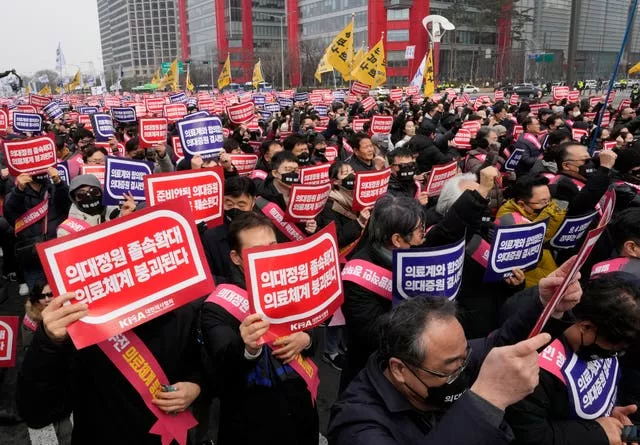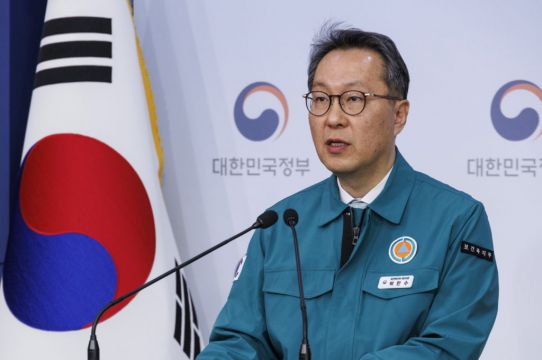South Korea’s government will start suspending the licences of striking junior doctors next week as they refuse to end their walkouts, officials said on Thursday.
More than 90 per cent of the country’s 13,000 medical interns and residents have been on strike for about a month to protest the government’s plan to sharply increase medical school admissions.
Their strikes have caused hundreds of cancelled surgeries and other treatments at hospitals.
Officials say the recruitment plan is aimed at adding more doctors to prepare for South Korea’s aging population in a country whose doctor-to-population ratio is one of the lowest in the developed world.

But doctors say schools cannot handle an abrupt, steep increase in students and that it would ultimately undermine the country’s medical services.
The government has been taking a series of administrative steps required to suspend their licences after they missed a February 29 deadline to return to work.
The steps include sending officials to formally confirm the absences of strikers, informing them of expected suspensions and giving them chances to respond.
Vice health minister Park Min-soo told a briefing the government is expected to complete those steps for some of the striking doctors so it will inform them of their license suspensions.
He urged the striking doctors to return to work immediately, suggesting those who end their strikes could receive softer punishments.
The striking junior doctors account for less than 10 per cent of South Korea’s 140,000 doctors. But in some major hospitals, they represent about 30 to 40 per cent of the doctors, assisting senior doctors during surgeries and dealing with inpatients while training.
Senior doctors at major university hospitals recently decided to submit resignations next week in support of the junior doctors. Still, most of them will likely continue to report to work. If they walk off the job, that would burden South Korea’s medical services severely.







